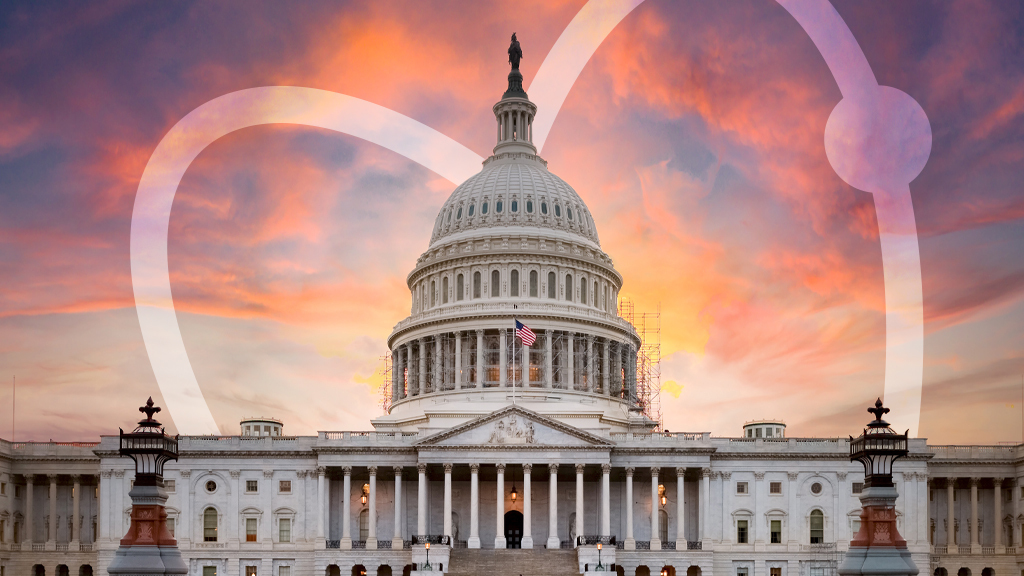Legislative Update
Will the Government Shut Down on March 1?
By NSTA Legislative Affairs & Advocacy Team
Posted on 2024-02-21

Disclaimer: The views expressed in this blog post are those of the author(s) and do not necessarily reflect the official position of the National Science Teaching Association (NSTA).
FY24 Budget and Appropriations Still Not Settled
Amid a highly politically charged environment and faced with the all-too-familiar threat of a possible federal government shutdown, lawmakers continue to hammer out appropriations for federal programs for Fiscal Year (FY) 2024 (which began on October 1), while simultaneously working on high-profile issues, such as border security, aid to Ukraine and Israel, and the impeachment of Homeland Secretary Alejandro Mayorkas.
On March 1, funding will expire for four of the 12 FY24 spending bills. On March 8, funding for the remaining eight bills—including the FY24 Labor, Health and Human Services, and Education appropriations bill—will expire. Both chambers will be back in session the week of February 26, but will have little time to address these issues, which could force a potential partial federal government shutdown unless they elect to pass another short-term bill.
NSTA and its allies are carefully watching these developments, and advocating for strong continued funding for programs that impact science teaching and learning, such as Title II and Title IV under the Elementary and Secondary Education Act (ESSA) and funding for the National Science Foundation (NSF) and other science mission agencies. Stay tuned.
Capitol Hill Event Focuses on the Challenges for Today’s Science Educators
More than 90 Hill staffers and education advocates attended the February 13 Capitol Hill event hosted by the STEM Education Coalition.
The expert panel was led by Dr. Heidi Schweingruber, director for the Board on Science Education at the National Academies of Science, who outlined the key issues in science education: a lack of elementary science teaching, inequitable student access to advanced coursework, and a shortage of STEM teachers. Schweingruber provided lawmakers with ideas for several policy actions to improve science outcomes, such as establishing local alliances and increasing science testing intervals.
Dr. Florentia Spires, STEM instructional leader for Prince George’s County, Maryland, and a former NSTA District Director, discussed her experience as a STEM and computer science educator. She advocated for increasing diversity among STEM educators to improve inclusivity and further elementary science education.
Leslie Brooks, Afterschool STEM Hub manager at the Afterschool Alliance, highlighted the opportunities afterschool STEM learning programs offer, giving students chances to follow their own interests with the “freedom to fail.” Kimberly Hughes, director of the UTeach Institute at the University of Texas at Austin, discussed efforts to recruit high-quality STEM teachers from non-educational backgrounds.
The Capitol Hill event is one of a series of events scheduled for 2024, hosted by the STEM Education Coalition and funded by the Overdeck Foundation, that will focus on science education.
NAEP Science Exam Is Getting a Major Update. Here's What to Expect
The National Assessment Governing Board gave final approval at the end of January to a new framework that aims to better gauge how students use science in real life and to build a clearer picture of why American scientific literacy has declined over time. Read the Education Week article or the NAGB press release from November, when the new framework was adopted.
New Research Center Planned for Improving Outcomes in Elementary Science Education
The National Center for Education Research (NCER) at the Institute of Education Sciences (IES) has released a new Request for Applications (RFA) to establish a National Research and Development (R&D) Center on Improving Outcomes in Elementary Science Education.
IES, in partnership with NSF, aims to establish a Science Center with the purpose of (1) improving measurement of learners’ science achievement outcomes and (2) generating evidence of the impact of elementary science interventions on learners’ science achievement outcomes. The center will provide national leadership on elementary science education and build capacity in the field to conduct rigorous impact trials of science education interventions. The application deadline is March 7, 2024.
Stay tuned for more advocacy and policy updates in future issues of NSTA Weekly.
The mission of NSTA is to transform science education to benefit all through professional learning, partnerships, and advocacy.


